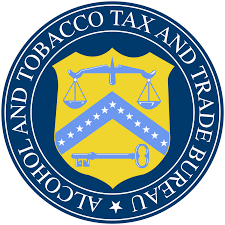By Megan Brown, a Partner with Wiley Rein LLP, with Boyd Garriott, Jeremy Broggi, and Wesley Weeks, Associates with the firm.* Wiley Rein LLP attorneys authored the two amicus briefs discussed in this post. The firm has long participated in cases involving core First Amendment issues, particularly as they relate to the government’s exercise of regulatory power.
Among the various areas of constitutional law on which the U.S. Supreme Court must routinely rule, the First Amendment has figured prominently during John Roberts’ tenure as Chief Justice. Speech rights are once again on the docket in the current term, and, depending on how the Justices rule on a pending petition for certiorari, may also be on the October Term 2019 docket this fall.
On April 15, the Court will hear oral arguments in Iancu v. Brunetti, a facial challenge to the Lanham Act’s prohibition on trademarks with “immoral” or “scandalous” matter. Iancu tests the limits of last term’s invalidation (in Matal v. Tam) of the “offense” bar in the Lanham Act. The Court also has been asked to review Interpipe Contracting, Inc. v. Becerra, which challenges a California law that favors pro-union speech as a violation of both the National Labor Relations Act (“NLRA”) and the First Amendment.
Iancu: Can the government discriminate against “immoral” speech?
In Iancu v. Brunetti, the United States Patent and Trademark Office (“USPTO”) refused to grant Erik Brunetti’s application to register the mark “FUCT,” which he has been using for decades. Finding that Brunetti’s clothing line depicted explicit sexual imagery, the USPTO concluded that the mark would be perceived as an obscenity and accordingly denied his registration under the Lanham Act’s prohibition on registering marks with “immoral” or “scandalous” matter. Brunetti challenged the USTPO’s determination in court, and the Federal Circuit applied strict scrutiny, holding that the Lanham Act provision was unconstitutional under the First Amendment as an impermissible content-based regulation of speech. The government then petitioned for certiorari, and the Supreme Court opted to take up the question.
The government’s argument can be boiled down to two main contentions: (1) the proper standard of review is lower than strict scrutiny because the scandalous-marks provision is not a restriction on speech, but rather a condition on the availability of government benefits; and (2) the scandalous-marks provision survives this lower standard of review because it is “a longstanding and reasonable means of vindicating a number of legitimate government interests.”
In response, Brunetti relies on the Supreme Court’s 2017 Tam decision, which struck down a similar prohibition on registering “disparag[ing]” trademarks. In particular, Brunetti contends that (1) the scandalous-marks provision constitutes viewpoint discrimination triggering strict scrutiny; or in the alternative (2) the provision regulates content, which triggers strict scrutiny; and (3) even under lower levels of scrutiny, the provision is unconstitutional.
An amicus brief filed by the Rutherford Institute in support of Brunetti offers a simple proposition: discriminating against offensive views is still viewpoint discrimination. The brief also picks apart the government’s arguments by distinguishing trademark registration from the narrow holdings of the government-subsidy and obscenity cases the government attempts to rely upon. The brief concludes by pointing out that even if the Court were to find that the scandalous-marks provision does not constitute viewpoint discrimination, the provision would nevertheless be unconstitutional either under strict scrutiny as a content-based regulation or intermediate scrutiny, pursuant to Central Hudson’s admonition that a restriction of commercial speech must be narrowly tailored to serve a substantial government interest.
Interpipe: Can the government play favorites with funding to advantage union speech?
In addition to Iancu, the Court has before it a petition in another speech case: Interpipe Contracting, Inc. v. Becerra. In that case, Interpipe Contracting, Inc. (“Interpipe”), performed work for California. California’s labor code requires public-works contractors to pay their employees the “prevailing wage” set by California either (1) in cash, or (2) in a combination of cash wages and employer payments, the latter of which can include payments to third-party industry-advancement funds. Using option number two, Interpipe paid contributions to an industry-advancement fund that supported open-shop arrangements. Then, effective 2017, California amended its labor code so that an employer could only count payments to an industry advancement fund against the prevailing wage requirement if that fund is approved by a labor union through a collective bargaining agreement. Interpipe and the fund to which it had previously made payments—the Associated Builders & Contractors of California Cooperation Committee, Inc.—challenged the amendment as (1) preempted by the National Labor Relations Act and (2) violative of the First Amendment.
The Ninth Circuit held that the law survived both challenges. According to the Ninth Circuit, the law was merely “a legitimate minimum labor standard that regulates no one’s labor speech.” Interpipe petitioned the Supreme Court for certiorari.
An amicus brief on behalf of the U.S. Chamber of Commerce supports Interpipe’s petition for certiorari. The brief argues that the California amendment effectively favors pro-unionization speech by requiring contractors to pay a prevailing wage and then alleviating that burden only where the contractor supports pro-unionization advocacy directed by a labor union. Accordingly, California’s scheme attempts to end-run the Supreme Court’s decision in Chamber of Commerce v. Brown, which held that California was preempted by the NLRA when it prohibited contractors from using state funds to “assist, promote or deter union organization.” The brief also highlights the fact that the law is not viewpoint neutral under the First Amendment and concludes by emphasizing the sea-change on national labor relations that this law would effect if allowed to stand. The day after the Chamber filed its brief, the Court signaled its interest in taking the case by calling for an opposition to be filed by the state of California.
Looking Forward
The Court made clear last term in Janus v. AFSCME that it is willing to enforce individuals’ First Amendment rights in high-profile labor cases. And in NIFLA v. Becerra, it reinforced its hostility to content-based regulations of speech that favor particular viewpoints. It remains to be seen whether the cases this term or next will achieve similar outcomes, but it appears that, at the very least, the First Amendment will continue to grab the attention of the Court.
 On November 26, 2018, the Alcohol and Tobacco Tax and Trade Bureau (TTB) published an extensive proposed rule that seeks to “reorganize and codify [labeling and advertising] regulations in order to simplify and clarify regulatory standards … and reduce the regulatory burden on industry members where possible.” The agency is accepting public comments on the proposal until June 26, 2019.
On November 26, 2018, the Alcohol and Tobacco Tax and Trade Bureau (TTB) published an extensive proposed rule that seeks to “reorganize and codify [labeling and advertising] regulations in order to simplify and clarify regulatory standards … and reduce the regulatory burden on industry members where possible.” The agency is accepting public comments on the proposal until June 26, 2019.




 For more than 40 years, merchants have sought the right to impose surcharges on customers who use credit cards when making purchases. They prefer customers to pay with cash because when a customer pays with a credit card, the merchant must pay a transaction fee to the credit-card issuer. To encourage cash transactions, many merchants would like to express their pricing in a way that conveys to customers that credit purchases lead to higher prices, but a number of States closely regulate how merchants may express that viewpoint.
For more than 40 years, merchants have sought the right to impose surcharges on customers who use credit cards when making purchases. They prefer customers to pay with cash because when a customer pays with a credit card, the merchant must pay a transaction fee to the credit-card issuer. To encourage cash transactions, many merchants would like to express their pricing in a way that conveys to customers that credit purchases lead to higher prices, but a number of States closely regulate how merchants may express that viewpoint. “It’s the only fast food chain I actually like.” That was Anthony Bourdain’s verdict on In-N-Out Burger. It is not an unusual opinion. Thanks to its clean halls, happy employees, and fresh produce, In-N-Out enjoys fanatical brand loyalty. Its new locations
“It’s the only fast food chain I actually like.” That was Anthony Bourdain’s verdict on In-N-Out Burger. It is not an unusual opinion. Thanks to its clean halls, happy employees, and fresh produce, In-N-Out enjoys fanatical brand loyalty. Its new locations 



 For the past several decades, the U.S. Supreme Court and at least some federal appeals courts have been moving in opposite directions with respect to First Amendment protection for commercial speech. The Supreme Court’s trend since the mid-1970s has been to afford ever-increasing protection to truthful speech uttered by commercial speakers. In sharp contrast, some federal appeals courts have become increasingly deferential toward government efforts to control such speech. The Supreme Court’s June 2018 decision in
For the past several decades, the U.S. Supreme Court and at least some federal appeals courts have been moving in opposite directions with respect to First Amendment protection for commercial speech. The Supreme Court’s trend since the mid-1970s has been to afford ever-increasing protection to truthful speech uttered by commercial speakers. In sharp contrast, some federal appeals courts have become increasingly deferential toward government efforts to control such speech. The Supreme Court’s June 2018 decision in  We’ve read with amusement the recent, overblown claims of some
We’ve read with amusement the recent, overblown claims of some